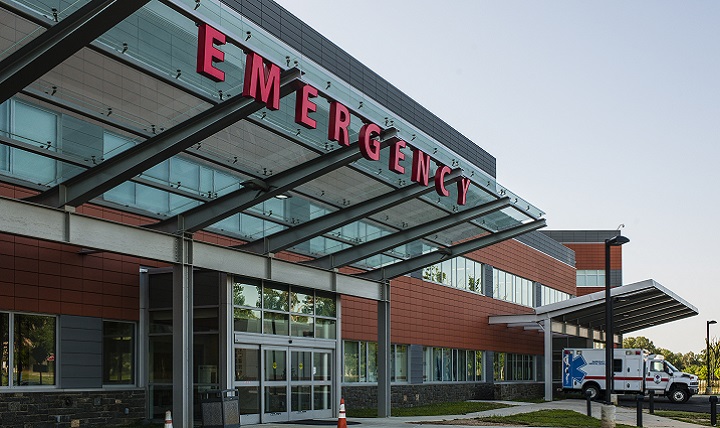Illness is almost routine in CF. The cough starts, then the fever, then the mucus production, then the change in the consistency of the mucus, then the call to the doctor. What follows that call is really one of a few possibilities.
“Come in, let’s get it checked out.”
“Start Cipro, stay in touch with us over the next couple days.”
“You need to be seen right away.”
Then comes the question, “What do your next few weeks look like?”
A tune-up, or the pulmonary exacerbations that we experience so frequently, start to feel routine over time. It’s almost like we begin to expect to be sick at one point or another. I’m saying that I know when or why I’m going to sick, I just know that living with CF for awhile has taught me to know that it is coming – eventually.
Learning to come to grips with such an expectation has prepared me in a lot of ways to deal with our complex healthcare system – from doctors, hospital intake services, interventional radiology units, OR nurses, recovery room nurses, homecare nurses, homecare pharmacies, specialty pharmacies, mom & pop pharmacies, insurance agencies, co-pay assistance programs, government assistance, financial planning, and parking vouchers to anything else we, patients, have to encounter on a daily basis. There are a lot of moving parts that encompass the “patient experience.”
As it turns out this week is #PatientExperienceWeek or #PXWeek (there’s a week for everything!) – which is defined by The Beryl Institute (a global community of practice dedicated to improving the patient experience through collaboration and shared knowledge) as “an annual event to celebrate healthcare staff impacting patient experience everyday. Inspired by members of the Institute community, PX Week provides a focused time for organizations to celebrate accomplishments, reenergize efforts and honor the people who impact patient experience everyday. From nurses and physicians, to support staff and executive professionals, to patients, families and communities served, the Institute hopes to bring together healthcare organizations across the globe to observe PX Week.”
So I wonder, how can we improve the patient experience for people living with cystic fibrosis?
What are your needs from the healthcare community?
The first thing that comes to my mind is confidence. Whether I receive good news or bad during a clinic visit or hospital stay, I want to leave feeling confident. Confidence, after all, is what allows us to be motivated.
Confidence is achieved through education and understanding the intricacies of our illness. What do my cultures look like? What antibiotics have I had success with? Is it limited success? How will a new treatment impact my day? Will I have to do more or fewer treatments as a result? Is this a gene mutation specific medication or broad spectrum? What have other people experienced while on this medication? Is there copay assistance? What does this do to my life in 5, 10, 20, 40, 90 days?
Can you answer all those questions confidently?
…Because they’re ones that I like to get answered.
They are questions that can be answered through normal conversation – something that is possible because of the relationship I have developed with my care team. When I’m able to see my care team as a group of human beings with the common goal of making me feel healthy, I trust that they in turn look at me as a human being. Confidence builds trust. Which leads me to what’s next on my list of needs from our healthcare system.
The human element.
The human element is what puts providers and patients on the same level. It’s what equalizes the hospital gown with the white coat. It allows for some transparency between two people who may not speak the same language – human anatomy and molecular biology vs. “I think I have a cold?” Being able to communicate effectively with people who are providing life-altering care is critical. The best conversations happen when you are seen as a human being and when you see the person on the other side of the prescription pad as a human being. Whether that person is an insurance rep, pharmacist, nurse or anyone else, we’re all on the same level, and I think that’s often kicked to the side or forgotten.
Our healthcare system demands extreme attention from the patient, which can be difficult when we’re critically ill. On the other side, we demand the same from the providers. When there is a gap in expectations and reality, a problem is created – maybe a medication isn’t covered, there’s a gap in care or any other situation that we perceive to be an issue. I know I’ve felt, more times than not, that I’ve been seen as a number, specimen or patient in the eyes of providers more time than I care to believe. I want to be seen as a human.
See me as a human, so I can look at you as one too.
My final need from the healthcare community in this space is time.
We need time to understand, adapt and act. A single clinic visit or hospital stay can change a person’s life forever (in a good or bad way). Things that may seem simple in our complex world are often far from it. A simple change alters the entire complex pattern that is our health.
We need time. We want to survive; our healthcare system is built to give us more time on this planet. Sometimes it feels like it’s failing us. Just look at my blog from earlier this week – are we alienating adults that have been living with this disease for decades in the name of creating solutions for the children today? Both groups should be able to need the same thing, and that’s equal time in this world. Beyond that we need time to see things as they are, educate and understand the consequences of any decision. Give us time to learn, the vast majority of us go to the clinic quarterly before we begin to progress. Providers live in that world. Give us time to catch up to when we need to understand something.
Those three pieces – confidence, the human element and time – are what I’ve learned to be critical in the patient experience. Ultimately they build on each other. Confidence is at the pinnacle, but it cannot be achieved with being seen as a human who is given time to understand, adapt and act. As my confidence in dealing with cystic fibrosis has grown, so has my overall patient experience. We need to lean on our healthcare system so that it grows to empower patients and our providers….together.





